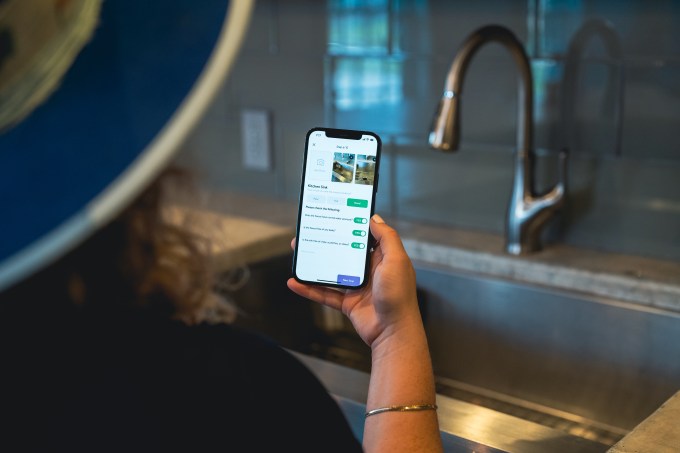Roxanne Petraeus
Contributor
Roxanne Petraeus is the CEO and co-founder of
Ethena, a compliance training platform for modern teams, and she is a former Army combat veteran.
More posts by this contributor
Sexual harassment is, unfortunately, always in the news. Of late, it’s revelations at gaming giants and governments. Yet despite how prevalent harassment is, companies often adopt an “it can’t happen here” stance — until it does, and then there are knee-jerk reactions and crisis communications.
A better approach: recognizing how pervasive it is and planning with that in mind.
When I first started Ethena, I explained the concept of innovative harassment prevention training to my father. Like any good parent, he thought my entrepreneurial genius was actually a terrible idea and advised me to stay put at my job. But when he finally accepted that I was going to start this company, he said, “Make sure you don’t have harassment at your company. That would be bad.”
He’s not wrong. My team provides a modern compliance training platform. Since our first product was harassment prevention training, it would be pretty bad if we were talking the talk without walking the walk.
Train your team members to better understand inclusion and recognize what harassment looks like so the bar is set higher than “let’s just not get sued.”
If I could prevent workplace harassment on optimism alone, I absolutely would. But I’ve seen the data on the prevalence of workplace harassment.
A 2018 Pew survey, for example, found that 59% of women and 27% of men reported experiencing sexual harassment. And the rise of remote work hasn’t changed things. In fact, there are some indications that harassment is on the rise thanks to “keyboard courage.”
Knowing that, I’ve come to terms with the fact that these are issues we’ll likely face, so I want us to be prepared. Today’s workplace demands that leaders acknowledge gray areas and engage with uncomfortable topics; it’s how companies grow in new and healthy directions. Here’s how we think about that growth.
Plan for it
As a Floridian, I grew up assuming hurricanes would hit my house. We always had some plywood and canned food because when you know something is going to happen, you plan for it.
Unlike prepared Floridians, startups tend to adopt an ostrich approach when it comes to harassment. Instead of stocking the pantry, so to speak, companies wait until they’re already in a storm.
Early on, a startup is a small group of (usually homogeneous) friends, and it’s uncomfortable to acknowledge that bad things could happen. It’s much easier to hope that building a team of stellar humans is enough.
But, unfortunately, bad things do happen, because sometimes harassment is not as cut-and-dried as we are led to believe. Rather, harassment often grows from the complexities of human interactions — intent, perception, privilege and context, to name a few. It can start with a few small jokes, a colleague who gets drunkenly inappropriate every Friday, or a team that never seems to hire anyone outside of their social circle.
Then, things can escalate, and people start to realize that what they’re actually experiencing is a hostile work environment. Unfortunately, at that point, it’s really hard to right the ship because the company is suddenly 600 people and change gets harder as companies grow.
Knowing that problems are more likely as companies scale, it’s vital that teams prepare by learning how to identify warning signs early. At a bare minimum, train your team members to recognize what workplace harassment looks like and better understand inclusion so that the bar is set higher than “let’s just not get sued.”
Out of everyone at the company, managers really need to get the memo. As a company scales, senior leaders have a limited span of control, so frontline managers become the most crucial employees in either promoting or preventing inclusive workplaces. It just so happens that training is legally required in states like California and New York.
Make feedback, not just “tell HR,” an option
The traditional way that harassment is talked about is very binary. Either a workplace is perfectly inclusive or it’s a toxic cesspool. Obviously, it’s important to take these issues seriously, but the problem with treating every act as either fine or serious, capital-H harassment is that it gives employees a choice between bad and worse.
Let’s say Elena is on an engineering pod with Jonah, and Jonah occasionally does small things that cause her to feel less than included.
For example, they’re hiring for a new front-end engineer and Jonah always refers to this future hire as “he.” In the traditional, frowny-faced lawyer version of harassment, Elena has two options:
- Do nothing: Bad because Jonah is going to keep doing it.
- Tell HR: Also bad. Elena doesn’t want to get Jonah fired. She just wants him to be more inclusive.
However, if training teaches Elena — and, ideally, everyone else on her team — to say something in the moment, Elena now has a tool she can actually use.
Next time Jonah says, “OK so when he joins … ” Elena can jump in with, “Unless you’re psychic, which seems unlikely given how poorly you did in Fantasy Football, please use ‘they’ to refer to our new hire, since we don’t know their gender.”
Did Elena need to insert the burn? Probably not, but humor can diffuse a tense situation so sure, why not? Regardless, once Elena says something, it’s on Jonah to accept her feedback and make a change; and, if team values are clear, hopefully Jonah’s colleagues will hold Jonah accountable, too.
Accountability is everything
This last lesson is only applicable after something at the company happens. Let’s say Jonah’s comments escalate, even after Elena gives feedback. Jonah consistently excludes Elena and other women from key meetings, talks over them, and when confronted, says, “Look, we all know they’re only here for diversity stats.”
If Jonah’s manager at this fictitious, problematic company does nothing, that’s the ballgame. There’s literally no amount of workshops, training, blog posts or all-hands meetings that can convince Elena that the company cares. Actions speak loudest.
The best possible version of dealing with an issue involves transparency so that people can learn from what happened and see that the company does care. Obviously, it’s hard when issues involve private information and protecting those who reported the issues, but to the extent possible, it’s crucial to have accountability.
Of course, my dad is right: Harassment at my company would be bad. But we’re preparing for it because scaling a company means rapidly increasing the number of human interactions.
Thankfully, building an inclusive company looks a lot like building a good company — preparation, feedback and accountability are managerial best practices that should be put in place early.

Powered by WPeMatico





